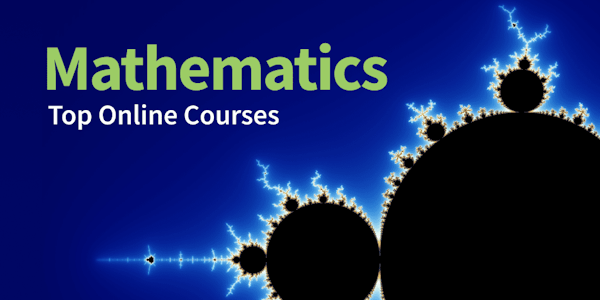Overview
This course is an introduction to Logic from a computational perspective. It shows how to encode information in the form of logical sentences; it shows how to reason with information in this form; and it provides an overview of logic technology and its applications - in mathematics, science, engineering, business, law, and so forth.
Syllabus
- Unit 1 - Introduction
- Unit 2 - Propositional Logic
- Unit 3 - Relational Logic
- Unit 4 - Functional Logic
- Unit 5 - Conclusion
Taught by
Michael Genesereth
Tags
Reviews
3.4 rating, based on 20 Class Central reviews
4.4 rating at Coursera based on 635 ratings
Showing Class Central Sort
-
This course started off very well, I was very drawn in to the first week while basic concepts were being presented and I felt very interested in the field of logic. This motivated me to start extremely early in the subsequent weeks (I usually wait t…
-
I dropped this class after 2 or 3 weeks despite having a 100% average on the assignments. The lectures were impossible to follow. I found myself reading a logic textbook to understand the material and do the homework. The book was far better than the video. After a few weeks, I decided I could use the textbook alone to learn logic and dropped the class.
-
I loved this course. The beginning of it was easy to follow with the help of practice questions. However, as I was finishing week 3, I was lost in the concepts and struggling to remember the signs and relationships between statements... I will spend…
-
The course is brilliant. The video lectures are very succinct, compact (which I think is one of the biggest qualities of a course) and interesting and the short lecture exercises are perfect as to make sure you understand the concepts. The name…
-
The content in the course is important to learn, but the introduction of fitch logic it difficult to use. I am someone who has taken courses in formal logic and even I found this difficult. For my purposes, as a philosopher, this is not quite useful to me anyway, as this seems to be more geared toward math majors or those in computer science. I would suggest waiting for University of Melbourne to relaunch their logic courses, which were much more relevant and informative.
-
This was my first MOOC ever and I hated it. On week 4 the unalignment between material/explenations provided and the exercises became clear as students started sharing links to third party sources in the forums so to be able to complete go ahead to week 5.
According to the forums, several spent hours for exercises that were supposed to take a few minutes. Also, no sort of help from the professor seem to have been given.
This course makes me believe that the quality of courses on coursera isn't that high afterall.
-
They really improved the course from a few years ago, concepts are much easier to understand in text than in video form. Many examples and some reiteration ensures your learning.
-
The interface is not friendly and material is not coherent enough. Almost no video and mostly some dry and limited reading material. I felt I would be better off reading a good book on the subject. The course and Stanford did not meet my expectations
-
Great content and exercises tool. Herbrand semantics doesn't seem to be that usual in textbooks, especially those for philosophers. Target audience seems to be computer scientists.
-
I dream to reason well in my speech through making critical analysis. I believe learning logic will give me the to help me develop in that area
-
-
-
-
-
-
-
logically understanding any human problem is become easy after doing this course. i suggest all my friends to go through this course.












